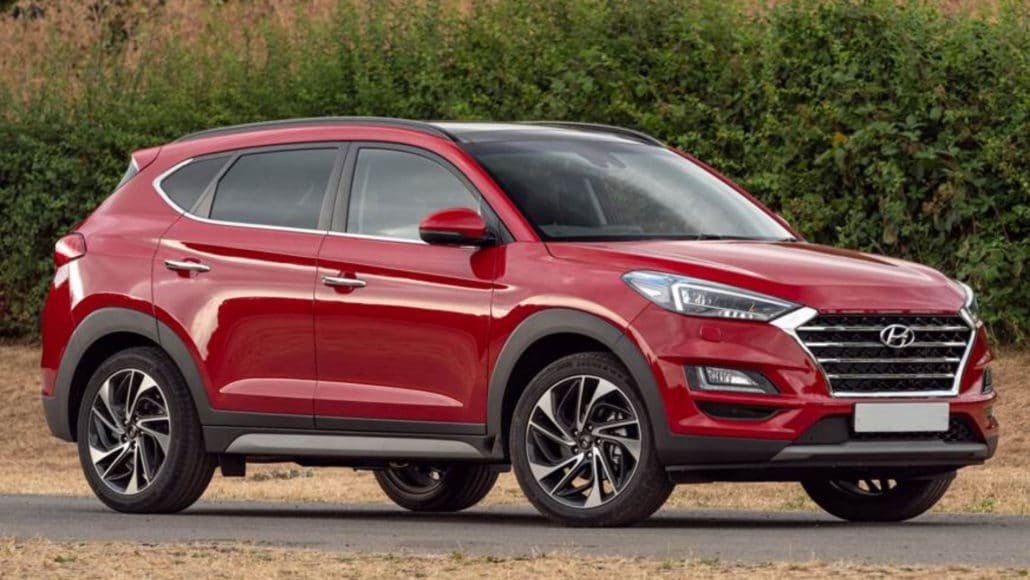Hyundai Tucson 2020 SUV was launched in India on Tuesday at a starting price of ₹22.3 lakh (ex showroom, introductory, pan India). First showcased at Auto Expo in February, the Tucson 2020 is yet another attempt from Hyundai at capturing a larger chunk of the premium SUV segment at a time when it has a strong presence in the compact and sub-compact SUV segments.
Hyundai Tucson Exterior
The 2020 Tucson gets several visual upgrades on the outside which are primarily highlighted by a more imposing cascading front grille, sharper LED head lights, reworked fog lights, redesigned tail lights and all-new alloys. The car sits on 18-inch diamond-cut alloys.
Hyundai Tucson Interior
On the inside, the SUV gets an all-black colour scheme, leather-stitched dashboard, floating-type 8-inch HD infotainment screen, Infinity eight-speaker system, panoramic sunroof, dual-zone climate control and a number of safety and convenience features like six air bags, hill assist, descent control, electronic parking brake (EPB), ABS with EBD, and front and rear parking sensors. It was always a given that Hyundai would bring features like wireless charging, DRVM, push-button start and similar features that have become a common sight in its lesser priced cars to the new Tucson.
Hyundai’s connected car technology – BlueLink – also makes an entry into the new Tucson which means the vehicle is better poised to take on its direct rivals. This means features like AC control, engine start/stop, vehicle tracking et cetra can also be controlled using a compatible smartphone and smartwatch.
Hyundai Tucson Engine
Under the hood, there is an option to choose between a 2.0-litre petrol engine and a 2.0-litre diesel engines. The former makes 153 bhp of power and has 192 Nm of torque while the diesel unit 182 bhp and has maximum torque of 400 Nm. Transmission duties are handled by an eight-speed automatic unit.
Hyundai Tucson Competitors
Tucson promises to bring a whole lot more when compared to the preceding model and may be able to change the mixed response it has had in the Indian market. Competition has also increased in recent times and apart from traditional rivals like Jeep Compass and XUV 500, there is some potential threat from the likes of Skoda Karoq and Volkswagen Tiguan even if these two products sit higher in the price band.
Also Read :
